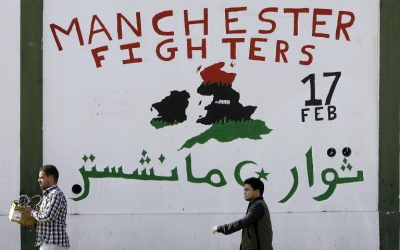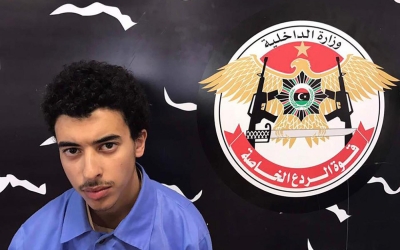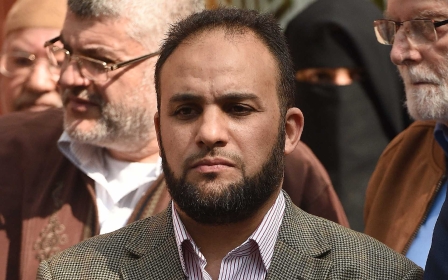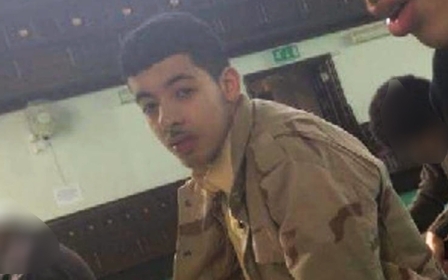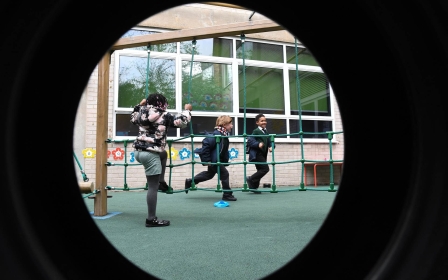Manchester bombing inquiry: MI5 accused of 'obfuscation and cover up'
The UK’s intelligence service, MI5, has been accused of citing national security concerns and “virtue signalling” to evade scrutiny over its failure to prevent the 2017 Manchester Arena bombing.
Making their closing statements at an inquiry into the attack on Monday, lawyers representing families of the 22 victims said MI5 had overlooked “persistent information” over years suggesting that the bomber, Salman Abedi, should have been identified as a threat.
Abedi, a British-Libyan man then aged 22, blew himself up in an attack on crowds leaving the music venue in May 2017 after an Ariana Grande concert.
'What the families I represent would really like to know is what exactly did Salman Abedi have to do to prompt a meaningful response from the security services?'
- Pete Weatherby, victims' families' representative
His younger brother, Hashem Abedi, was last year jailed for 55 years after being convicted of helping to plan the bombing. His older brother, Ismail Abedi, left the country last year after being summoned to give evidence to the inquiry. He is currently the subject of an arrest warrant in the UK.
Speaking on behalf of a group of families of seven of the victims, Pete Weatherby told the inquiry that Salman Abedi had not “emerged out of the shadows”.
“What the families I represent would really like to know is what exactly did Salman Abedi have to do to prompt a meaningful response from the security services?” said Weatherby.
Much of MI5’s evidence to the inquiry has been heard in closed sessions because of the sensitivity of the material, with only a vetted summary heard in open court.
The inquiry has nonetheless heard that two key pieces of intelligence received by MI5 in the months before the bombing were not shared with counter-terrorism policing because their significance “was not fully appreciated at the time”.
Weatherby questioned whether MI5 was open to scrutiny and criticism, citing evidence by a former senior intelligence officer who warned that the inquiry could damage the confidence of those on the “investigative and operational front line”.
“The proper response of anyone who wants to learn lessons and improve for the future is to accept failure, be open and transparent and address it. The book of excuses, prevarication and confabulation eventually begins to look like obfuscation and cover-up, even if it is not,” Weatherby said.
“This process is not helped by some of the virtue signalling and assertions that amount to: ‘Trust us, we are a world-class security service.’”
Bomber fought in Libya
Lawyers for the families cited evidence heard by the inquiry suggesting that Abedi had travelled to Libya aged 16 with his father and brothers in 2011 and had probably fought in the uprising that toppled the country’s long-time leader, Muammar Gaddafi.
They cited the influence on him of his father, Ramadan Abedi, who the inquiry has heard was part of a circle of Libyan exiles in Manchester with links to the Libyan Islamic Fighting Group (LIFG), an anti-Gaddafi Islamist militant group, and al-Qaeda.
They said Ramadan Abedi and his sons appeared to have been members of the 17 February Martyrs Brigade, an Islamist militia, alongside others from Manchester’s Libyan community, citing photographs of the brothers holding heavy weaponry.
Middle East Eye reported in 2017 that the British government had operated an “open door” policy that allowed Libyan exiles and British-Libyans to travel to Libya to join the revolution against Gaddafi.
Former fighters told MEE they were able to travel to Libya with "no questions asked" at the time of the conflict, even though some were subject to counter-terrorism control orders restricting their movement.
At the time, the LIFG was a proscribed terrorist organisation, although it was delisted in 2019.
The inquiry has also examined Salman Abedi’s contact with a number of other individuals who travelled to fight in Libya and Syria or have been convicted of terrorism offences in the UK.
They include Abdalraouf Abdallah, who was convicted in 2016 of helping people travel to Syria to fight and of trying to send money to his brother who had travelled to Syria to join the Islamic State (IS) group in 2014.
Salman Abedi and other members of his family had continued to travel back and forth between the UK and Libya as the Islamic State (IS) group was gaining territory in the country.
Members of the family were routinely stopped and questioned while travelling, the inquiry heard, and material indicative of support for IS was found on Ismail Abedi’s phone during one airport stop in 2015.
'Fixated on Syria'
Weatherby said the inquiry needed to consider whether “information regarding the brothers’ allegiance to ISIS was taken seriously enough or were the security services too fixated on Syria and missed the evidence elsewhere?”
The inquiry heard that MI5 first received information about Salman Abedi in 2010 when he was 15. In March 2014, he was designated a subject of interest because of his contacts with another subject of interest. But the investigation was closed in July 2014, shortly after he had travelled to Libya.
Weatherby noted that MI5 had received further intelligence on him in 2015 and 2016 and said he had been linked to eight other subjects of interest between 2013 and 2017.
But he expressed frustration that MI5 had not been able to provide more answers to the families about its knowledge of Abedi prior to the bombing.
He cited the evacuation of Salman and Hashem Abedi from Tripoli along with other British nationals aboard a Royal Navy warship in August 2014 amid widespread fighting in the country between rival armed groups.
Weatherby said the inquiry had heard in open session that the brothers had agreed to be debriefed on their return to the UK, but that the families had been stopped from asking whether a debrief took place.
“The families are bemused as to how the fact of a debrief taking place could be deemed to be a potential threat to national security,” he said in his closing statement to the inquiry.
Weatherby’s concerns were echoed by lawyers representing other family groups.
John Cooper, representing families of 12 of the victims, accused MI5 of using closed sessions to “close down open analysis and challenge” in a way that had caused the families “an immense sense of frustration”.
"We question the transparency and genuine motivations of MI5 and the security services, not only to assist this inquiry but to place matters properly suitable for open hearing in the open hearing domain in plain sight to be examined by the families," he said.
In its closing statement to the inquiry, the UK government said MI5 had consistently made clear that it welcomed “rigour and intensity” and had responded to questions with “complete frankness”.
“For the avoidance of any doubt, M15 has not sought to withhold public disclosure of information in order to protect its reputation or otherwise avoid scrutiny and, had it sought to do so, the Inquiry would not have permitted it,” the government said.
Middle East Eye propose une couverture et une analyse indépendantes et incomparables du Moyen-Orient, de l’Afrique du Nord et d’autres régions du monde. Pour en savoir plus sur la reprise de ce contenu et les frais qui s’appliquent, veuillez remplir ce formulaire [en anglais]. Pour en savoir plus sur MEE, cliquez ici [en anglais].


